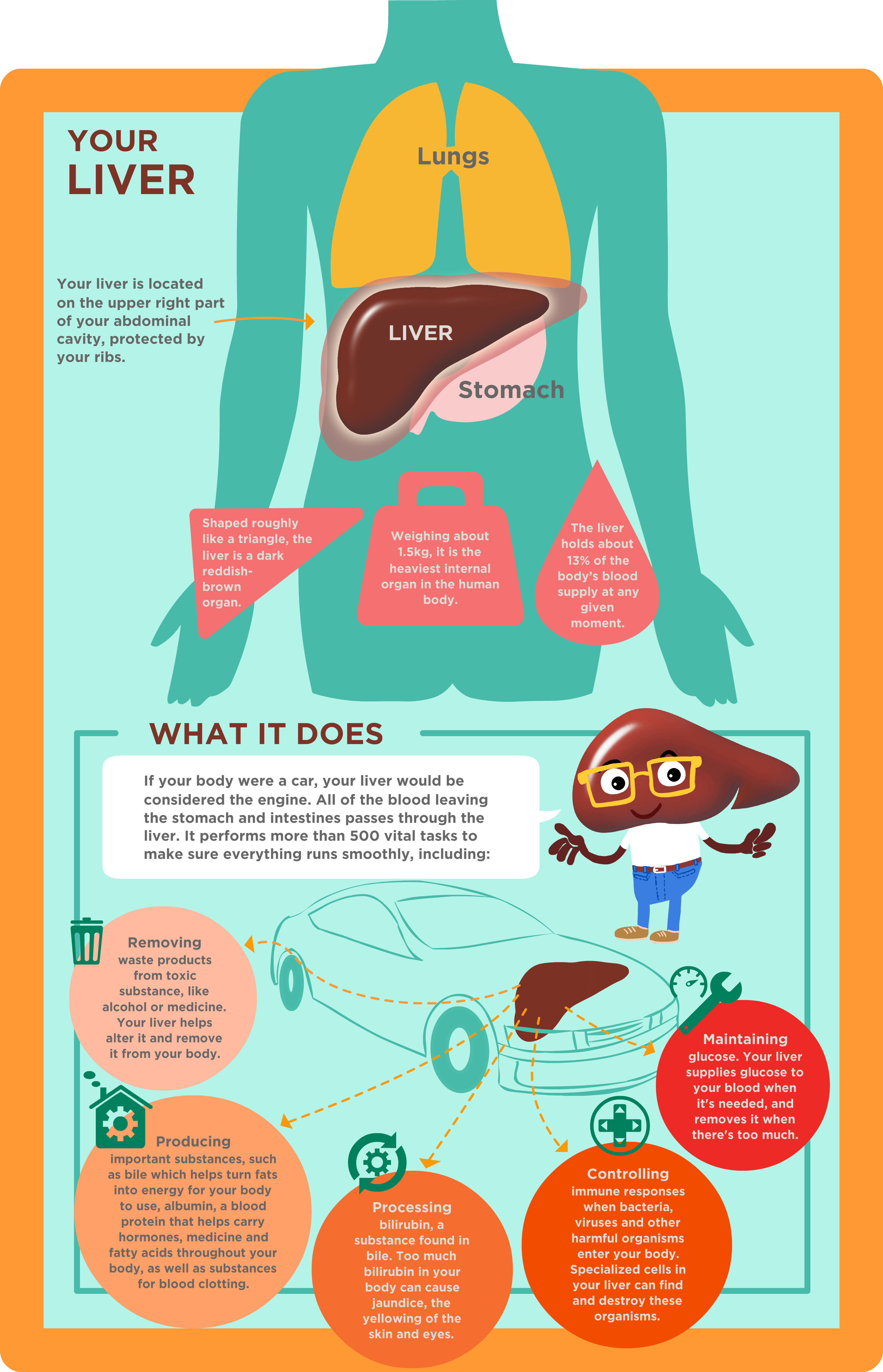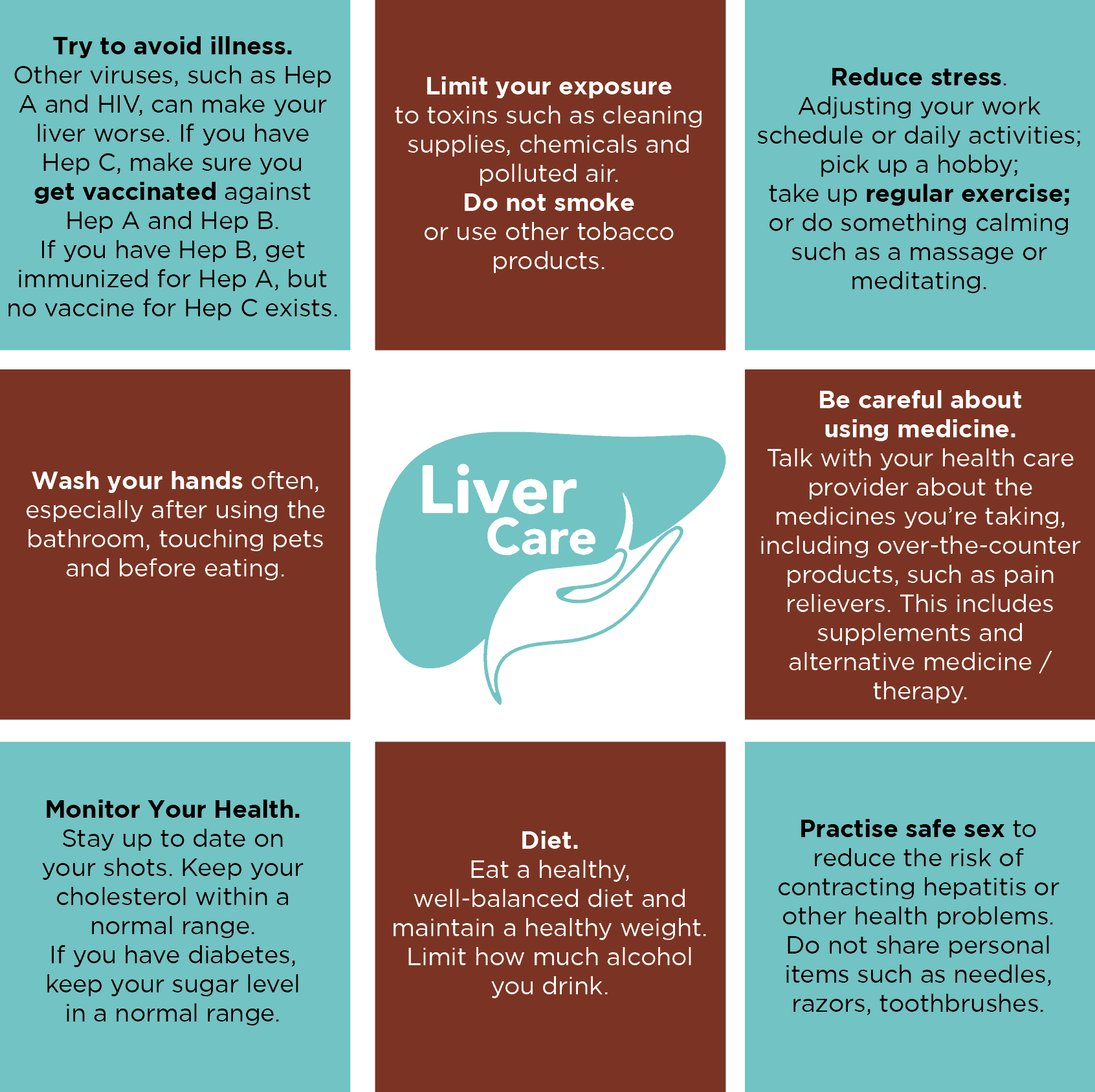Know Your Liver
Your Liver is So Important, You Cannot Live Without It
Your liver is the largest internal organ in your body and performs more than 500 vital functions. All of the blood leaving the stomach and intestines passes through the liver, where nutrients are processed and harmful substances are filtered out.

What Can Go Wrong
An organ as complex as the liver can experience a range of problems. In a diseased or malfunctioning liver, the consequences can be dangerous or even fatal.
Examples of liver diseases include:
HEPATITIS
Hepatitis means “Inflammation” of the liver. It is usually caused by infections (bacteria or viruses), medication, alcohol or metabolic disorders (e.g. fatty liver). There are currently 5 viruses identified (Hep A, B, C, D and E) that specifically attack the liver.
FIBROSIS
When hepatitis goes on for a long time, this results in scar tissue being deposited in the liver. Over time, the accumulation of scar tissue results in cirrhosis.
CIRRHOSIS
This condition is the late stage of liver scarring (fibrosis) as scar tissue replaces normal functioning of liver cells and can lead to liver failure. Once established, cirrhosis is generally not reversible.
FATTY LIVER DISEASE
Fatty liver disease is also known as o-alcoholic fatty liver disease (NAFLD). Excess fat build up in the liver cells, usually due to diabetes or metabolic syndrome. The excess fat can cause chronic inflammation and lead to cirrhosis.
LIVER CANCER
People with chronic Hep B or Hep C infections have a 20 – 100 times increased risk of developing liver cancer. The survival statistics for liver cancer are very low. If patients are diagnosed early, their relative survival rate at 5 years is 31%. If patients are diagnosed after the cancer has spread out of the liver, less than 10% survive to 5 years.
Take care of your body.
It is the only place you have to live.
Liver Care
You can reduce the stress on your liver by controlling three of its major enemies: alcohol, smoking and too much weight, which can seriously affect how your disease progresses in your body.
It is important to keep your liver functioning well and reduce your risk for liver disease, even after you have been cured of Hepatitis B or Hepatitis C and do not experience any symptoms.





